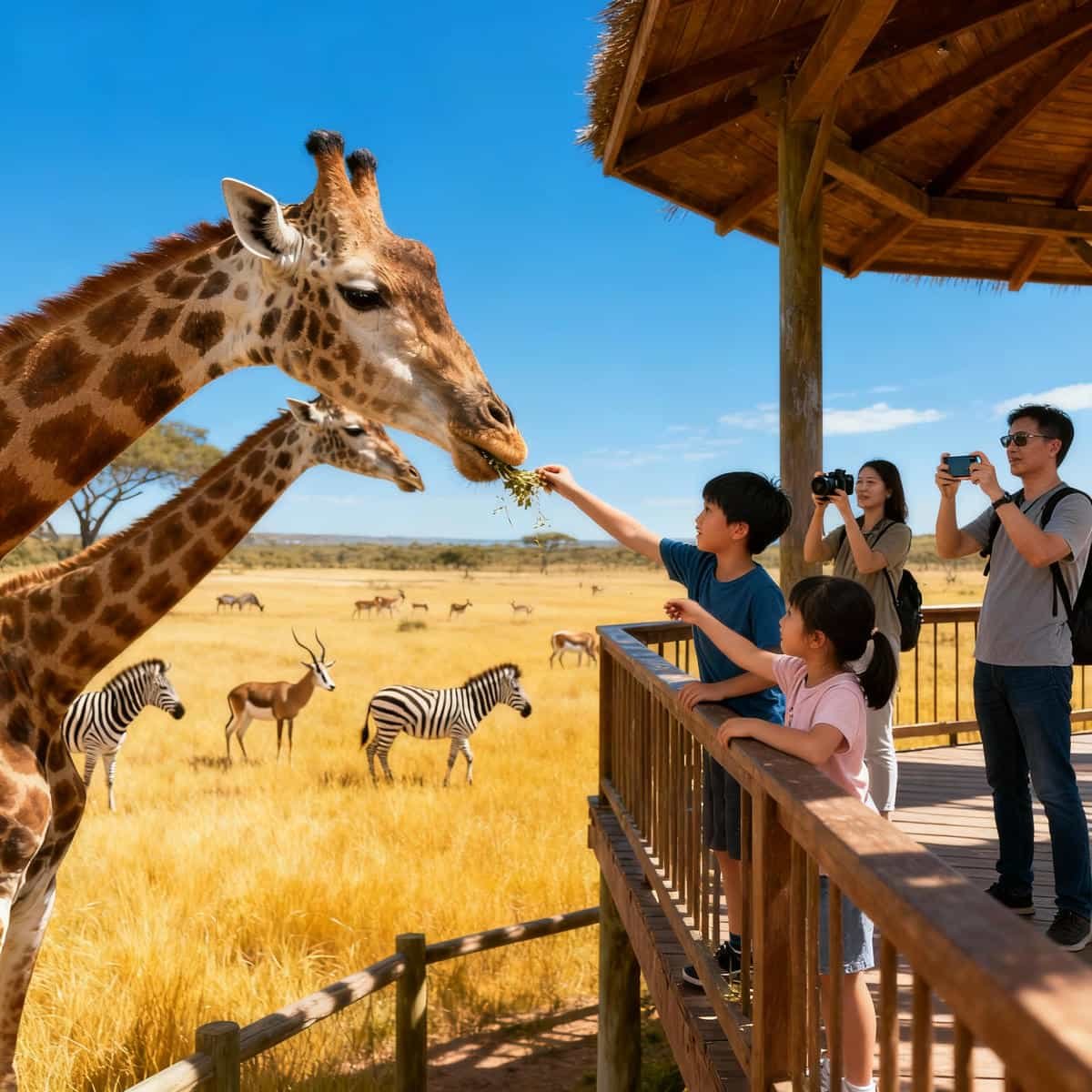Introduction to Zoos & Aquariums
Zoos and aquariums are windows into the natural world, bringing the wonders of wildlife and marine life within reach of travellers everywhere. From sprawling safari parks and city-centre zoos to vast oceanariums and specialist aquariums, these attractions allow visitors to encounter creatures they may never otherwise see. Whether it’s walking through a rainforest dome, standing beneath a shark tunnel, or joining a conservation talk, Zoos & Aquariums connect people with nature in unforgettable ways.
These experiences are not only entertaining but also vital for education, conservation, and fostering respect for biodiversity. For families, they provide magical first encounters with animals. For adults, they offer new insight into global ecosystems and environmental challenges. Together, they remind us of our shared responsibility to care for the planet.
Why Zoos & Aquariums Matter
Modern zoos and aquariums are far removed from the menageries of the past. Today, they serve as cultural and scientific institutions dedicated to conservation, education, and research. They:
- Preserve endangered species through breeding programmes and global partnerships.
- Support habitat restoration and conservation projects in the wild.
- Educate millions of visitors annually about ecosystems, animal welfare, and climate change.
- Offer family-friendly experiences that inspire curiosity and respect for animals.
- Provide accessible learning for school groups, families, and lifelong learners alike.
For many children, their first visit to a zoo or aquarium is life-changing — sparking curiosity about science, wildlife, and the environment. For travellers, these attractions are opportunities to see creatures from every corner of the globe in one place, while also supporting global conservation efforts.
Global Highlights
UK & Ireland
The UK has some of the world’s most respected zoos and aquariums. London Zoo, part of the Zoological Society of London (ZSL), has been pioneering conservation since 1828. Chester Zoo, with over 35,000 animals, is famous for its conservation work and immersive habitats like Islands. Edinburgh Zoo is home to the UK’s only giant pandas, while SEA LIFE centres across the UK and Ireland offer hands-on marine encounters for all ages.
Europe
Europe is rich with historic and modern zoological institutions. Berlin Zoo houses the most species of any zoo in the world, while Vienna Zoo (Tiergarten Schönbrunn) is the oldest continually operating zoo, dating back to 1752. Lisbon Oceanarium is one of the largest indoor aquariums on the continent, with spectacular ocean tanks. Families also flock to Bioparc Valencia in Spain, where animals live in open, naturalistic habitats that replicate savannahs and rainforests.
USA & Canada
North America leads with large-scale and immersive attractions. San Diego Zoo is world-renowned, featuring expansive exhibits and a safari park. The Bronx Zoo in New York combines conservation with education, while the Georgia Aquarium in Atlanta boasts one of the largest single aquatic habitats on Earth. In Canada, the Toronto Zoo and Vancouver Aquarium highlight both local species and international ecosystems.
Asia-Pacific
Across Asia-Pacific, wildlife encounters blend culture and conservation. Singapore Zoo is globally celebrated for its open-concept enclosures and night safari experiences. Ueno Zoo in Tokyo is Japan’s oldest zoo, while Taronga Zoo in Sydney overlooks the city’s harbour and focuses on conservation education. In China, Chengdu’s Giant Panda Research Base is dedicated to panda conservation, while Ocean Park Hong Kong combines aquarium habitats with thrill rides.
Together, these attractions create a worldwide network of conservation, education, and entertainment — giving visitors countless opportunities to connect with nature.
What to Expect & Unique Elements
Zoos and aquariums are as varied as the animals they house, but many share these common features:
- Immersive habitats such as walk-through aviaries, glass tunnels beneath shark tanks, or rainforest domes.
- Animal encounters and feedings — from giraffe feeding platforms to penguin experiences.
- Educational programmes including keeper talks, behind-the-scenes tours, and conservation workshops.
- Themed areas and zones such as African savannahs, polar regions, or coral reef ecosystems.
- Family-friendly facilities like children’s zoos, play parks, and discovery centres.
- Seasonal events such as zoo lights at Christmas, summer festivals, or Halloween nights.
- Combo passes allowing access to multiple attractions in the same city or region.
Tips
- Book in advance: Popular zoos and aquariums often sell out during weekends and school holidays.
- Arrive early: Feeding times and animal talks are usually scheduled in the morning.
- Wear comfortable shoes: Expect a lot of walking, especially in larger safari parks.
- Check accessibility: Many zoos and aquariums offer wheelchair access, but terrain can vary.
- Plan your route: Major zoos are vast — decide which areas to prioritise before arriving.
- Bring water and snacks: Some attractions allow picnics, while others offer cafes and restaurants.
- Respect the rules: Never feed or touch animals unless part of a supervised experience.
FAQs
Do zoos and aquariums support conservation?
Yes, most accredited zoos and aquariums are actively involved in breeding and conservation programmes.
Can I buy tickets in advance?
Yes – booking ahead is recommended to avoid queues.
Are they family-friendly?
Absolutely – zoos and aquariums are among the most popular attractions for families with children.
Are there ethical concerns?
Modern zoos and aquariums prioritise animal welfare, naturalistic habitats, and conservation. Always choose accredited institutions.
Can I combine zoo visits with other attractions?
Yes. Many city passes or attraction bundles include zoos or aquariums.
Are there discounts available?
Children, students, and families often receive reduced rates. Some cities also offer free entry days.
Are zoos and aquariums accessible?
Most modern venues offer wheelchair access, stroller rentals, and accessible facilities, but check before your visit.
Region Links
Zoos & Aquariums
- UK & Ireland →
- Europe →
- USA & Canada →
- Asia-Pacific →
